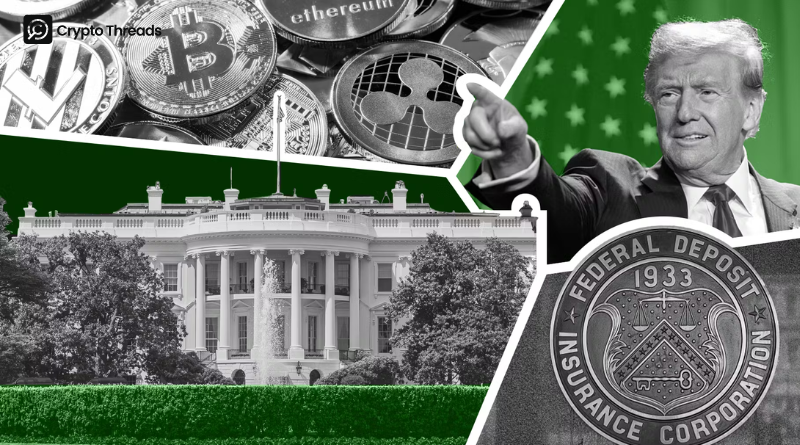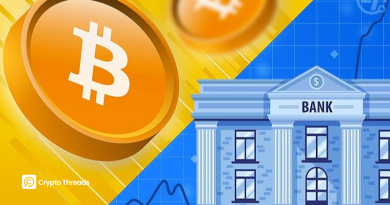Crypto Debanking Persists in US Despite Trump’s Pro-Crypto Push
Key Takeaways:
- US banks continue closing accounts for crypto firms, a practice critics label “Operation Chokepoint 2.0” or “3.0”
- Unicoin CEO says five major banks have cut ties despite strong financial records
- President Trump plans an executive order to investigate and penalize banks engaged in debanking
- Legal experts warn lasting change depends on the final wording of new regulations
- Banks are likely to remain cautious until rules clearly reduce perceived risks
Debanking Continues Despite Pro-Crypto Promises
Despite President Donald Trump’s repeated assurances of support for digital assets, US banks are still closing the accounts of crypto-related businesses. Alex Konanykhin, CEO of Unicoin, told Cointelegraph that his company has been directly affected, with several major banks cutting ties over the years without providing explanations.
For more than a decade, parts of the crypto industry have faced account closures and service denials under what many see as a policy-driven effort to marginalize the sector. Industry members often refer to it as “Operation Chokepoint 2.0,” drawing a parallel with an earlier government program that pressured banks to avoid certain industries.
Some expected the practice to fade after Trump’s election victory. His campaign platform, public statements, and early policy actions signaled an openness toward integrating digital assets into the mainstream financial system. However, reports from within the industry suggest little has changed.
Last week, Andreessen Horowitz general partner Alex Rampell described what he called “Operation Chokepoint 3.0.” He said major banks are raising costs for fintech and crypto applications, charging higher fees to access account data or move funds to platforms such as Coinbase and Robinhood.
A Widespread Problem and Potential Policy Shift
Konanykhin said Unicoin and its subsidiaries have been debanked by five major institutions, including Citibank, Chase, Wells Fargo, City National Bank of Florida and TD Bank. He claimed that four of these closures happened this year alone, calling it evidence of a nationwide, coordinated pattern.
Unicoin is a publicly reporting company with more than 4,000 shareholders and six years of audited financial statements. According to Konanykhin, the closures have been “highly disruptive and damaging” to operations, depriving crypto firms of basic financial services and weakening the US position in the global digital asset market.
Bloomberg reported that President Trump plans to sign an executive order that would direct federal bank regulators to identify and penalize institutions engaged in debanking. The order is expected to require regulators to review complaint records and direct banks under the Small Business Administration’s oversight to reinstate customers found to have been unlawfully denied services.
Konanykhin said he is hopeful the measure could bring relief. “The President knows the pain of debanking first-hand and seems determined to stop this form of economic warfare against American businesses,” he noted, adding that ending the practice could allow US crypto to regain global leadership.
Regulatory Outcome Still Unclear
Elizabeth Blickley, a partner at Fox Rothschild’s Tax Controversy & Litigation Practice, cautioned that meaningful change will depend on the final language of new rules and legislation. She pointed to the recently enacted GENIUS Act, which gives the Federal Reserve’s Stablecoin Certification Review Committee 180 days to design a regulatory framework.
Blickley noted that most bills never make it past the committee stage, and those that do can still face legal challenges from both proponents and opponents. “A regulation may appear to comply with the President’s request or a law may be passed, yet still have little practical impact due to the wording,” she said.
For now, she believes banks will remain risk-averse toward crypto clients until new rules clearly outline protections and reduce perceived compliance risks. “It’s all about making risk-averse entities and people feel like crypto is less of a risk,” she concluded.



